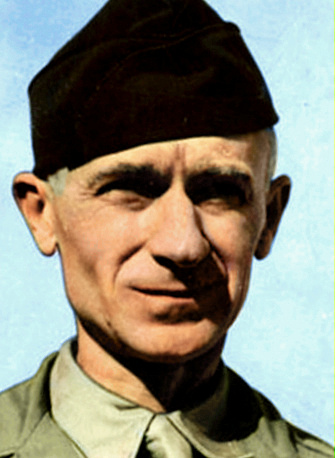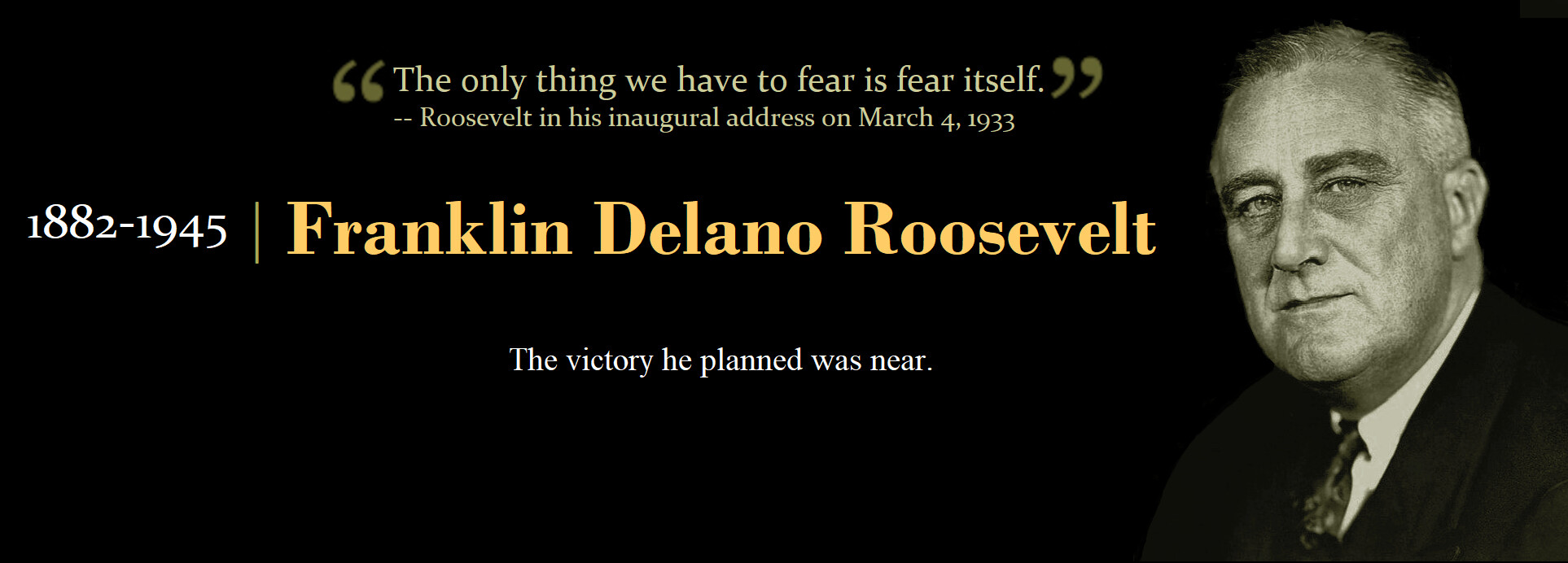Wheeler asks OPA to raise meat prices
Says that would kill black market
…

By Ernie Pyle
OKINAWA (via Navy radio) – Our first night on Okinawa was uncanny and full of old familiar sounds – the exciting, sad, weary little sounds of war.
It had been six months since I’d slept on the ground, or heard a rifle shot. With the Marines it was about the same.
I was tagging along with a headquarters company of a regiment. We were on a pretty, grassy slope out in the country. The front lines were about a thousand yards ahead. Other troops were bivouacked all around us.
There were still a few snipers hiding around. An officer was brought in just before dark, shot through the arm. So, we were on our toes.
Just at dusk, three planes flew slowly overhead in the direction of the beach. We paid no attention, for we thought they were ours. But they weren’t.
In a moment all hell cut loose from the beach. Our entire fleet and the guns ashore started throwing stuff into the sky. I’ve never seen a thicker batch of ack-ack.
As one of the Marines said, there were more bullets than there was sky. Those Jap pilots must have thought the world was coming to an end to fly into a lead storm like that only 10 hours after we had landed on Okinawa. All three were shot down.
No country sounds at all
As deep darkness came on, we got into our foxholes and settled down for the night. The countryside became as silent as a graveyard – silent, that is, between shots. The only sounds were war sounds. There were no country sounds at all. The sky was a riot of stars.
Capt. Tom Brown was in the foxhole next to me. As we lay there on our backs, looking up into the starry sky, he said:
“There’s the Big Dipper. That’s the first time I’ve seen that since I’ve been in the Pacific.” For, you see, Marines of this division have done all their fighting under the Southern Cross, where our Big Dipper doesn’t show.
As full darkness came, flares began lighting the country ahead of us over the front lines. They were shot in shells from our battleships, timed to burst above our lines, and float down on parachutes. This was to keep the country lighted up so we could see the Japs if they tried to infiltrate, which is one of their favorite tricks.
The flares were shot up several per minute from dusk until the moon came out full. It was very bright after that and the flares were not needed.
But all night long, two or three ships kept up a slow shelling of the far hills where the Japs were supposed to be. It wasn’t a bombardment; just two or three shells per minute. They passed right over us and I found that passing shells have the same ghostly “window shade rustle” on this side of the world as on the other.
My foxhole was only about 20 feet from where two field telephones and two field radios were lying on the ground. All night, officers sat on the ground at these four pieces of communications and directed our troops.
Conversation startlingly familiar
As I lay there listening in the dark, the conversation was startlingly familiar – the words and the thoughts and the actions exactly as I’d known them for so long in the infantry.
All night I could hear these low voices over the phones – voices in the darkness, voices of men running the war at the front.
Not long after dark the rifle shots started. There would be a little flurry far ahead, maybe a dozen shots. Then silence for many minutes.
Then there would be another flurry, way to the left. Then silence. Then the blurt of a machine gun closer, and a few scattered single shots sort of framing it. Then a long silence. Spooky.
All night it went like that. Flares in the sky ahead, the crack of big guns behind us, then of passing shells, a few dark figures coming and going in the night, muted voices at the telephones, the rifle shots, the mosquitoes, the stars, the feel of the damp night air under the wide sky – back again at the kind of life I had known so long.
The old familiar pattern, unchanged by distance or time from war on the other side of the world. A pattern so imbedded in my soul that, coming back into it again, it seemed to me as I lay there that I’d never known anything else in my life. And there are millions of us.
Planning begun early in 1943
By Tom Wolf
…
By Ruth Finney, Scripps-Howard staff writer
…
Big Three unable to reach agreement on interpretation of Yalta statement
…
Ostermueller pitches – Frisch whips illness, arrives to take charge
…
…
Who is to get output to create problem
By John W. Love, Scripps-Howard staff writer
…

The world may be sure that we will prosecute the war on both fronts, east and west, with all the vigor we possess to a successful conclusion.
U.S. Navy Department (April 12, 1945)
For Immediate Release
April 12, 1945
News of the death of President Roosevelt was dispatched to all ships and stations of the United States Navy tonight in a message by Secretary of the Navy James Forrestal, who called upon the nation’s sea forces to pay tribute to the memory of the nation’s leader by carrying on “in the tradition of which he was so proud.”
The Secretary’s message follows:
I have the sad duty of announcing to the naval service the death of Franklin Delano Roosevelt, the President of the United States, which occurred on twelve April.
The world has lost a champion of democracy who can ill be spared by our country and the Allied cause. The Navy which he so dearly loved can pay no better tribute to his memory than to carry on in the tradition of which he was so proud.
Colors shall be displayed at half-mast for thirty days beginning 0800 thirteen April West Longitude Date insofar as war operations permit. Memorial services shall be held on the day of the funeral to be announced later at all yards and stations and on board all vessels of the Navy, war operations permitting.
Wearing of mourning badges and firing of salutes will be dispensed with in view of war conditions.
The 6th Marine Division on Okinawa moved forward against sporadic resistance by the enemy on Motobu Peninsula on April 12 (East Longitude Date). On Ishikawa Isthmus, our troops continued to press northward over rugged terrain and extremely poor roads. The 1st Marine Division continued mopping up in its zone of action.
There was virtually no change in the lines in the Southern sector of Okinawa where the XXIV Army Corps, including elements of the 27th and 96th Divisions, continued to meet strong enemy resistance on April 12.
On April 12, large numbers of enemy aircraft made desperate suicidal attacks on our forces in the Okinawa Area. Early in the morning, seven enemy aircraft were shot down in the vicinity of the Hagushi beaches. During the afternoon, ships’ guns, carrier aircraft and shore-based anti-aircraft shot down 111 of the attackers. One of our destroyers was sunk during these attacks and several other surface units were damaged but remained in operation.
Installations on Chichi Jima and Haha Jima in the Bonins were bombed and strafed on the night of April 11-12 by Army Black Widow night-fighters.
Warehouse and other installations in the Palaus and facilities on the airfield on Yap in the Western Carolines were bombed by Hellcat and Corsair fighters and Avenger torpedo planes of the 4th Marine Aircraft Wing on April 12.
Liberators of the 7th Army Air Force bombed installations on Truk in the Carolines on April 11.
Search aircraft of Fleet Air Wing Four and Mitchells and Liberators of the 11th AAF on April 11, made rocket machine gun and bombing attacks on installations on Shumushu, Paramushiru, and the Torishima Group in the Northern Kurils. On April 11, further attacks were carried out by 11th AAF aircraft on the Kataoka Naval Base on Shumushu where Army planes damaged one of several enemy fighters which attacked them. FlAirWing Four Search planes made rocket and strafing attacks on installations at the mouth of the Hayake River on Paramushiru on April 11. Minami Cape on Shumushu and Masu Town on Paramushiru were bombed by Army Mitchells on the same date. All our aircraft returned safely.
By the President of the United States of America
A Proclamation
For Immediate Release
Office of the Press Secretary
April 13, 1945
To the People of the United States:
It has pleased God in His infinite wisdom to take from us the immortal spirit of Franklin Delano Roosevelt, the 32nd President of the United States.
The leader of his people in a great war, he lived to see the assurance of the victory but not to share it. He lived to see the first foundations of the free and peaceful world to which his life was dedicated, but not to enter on that world himself.
His fellow countrymen will sorely miss his fortitude and faith and courage in the time to come.
The peoples of the earth who love the ways of freedom and of hope will mourn for him.
But though his voice is silent, his courage is not spent, his faith is not extinguished. The courage of great men outlives them to become the courage of their people and the peoples of the world. It lives beyond them and upholds their purposes and brings their hopes to pass.
NOW, THEREFORE, I, HARRY S. TRUMAN, President of the United States of America, do appoint Saturday next, April 14, the day of the funeral service for the dead President, as a day of mourning and prayer throughout the United States. I earnestly recommend the people to assemble on that day in their respective places of divine worship, there to bow down in submission to the will of Almighty God, and to pay out of full hearts their homage of love and reverence to the memory of the great and good man whose death they mourn.
IN WITNESS WHEREOF, I have hereunto set my hand and caused the seal of the United States, to be affixed.
DONE at the City of Washington, the thirteenth day of April, in the year of our Lord, one thousand nine hundred and forty-five, and of the independence of the United States, the one hundred and sixty-ninth.
HARRY S. TRUMAN
By the President:
E.R. STETTINIUS Jr.,
Secretary of State